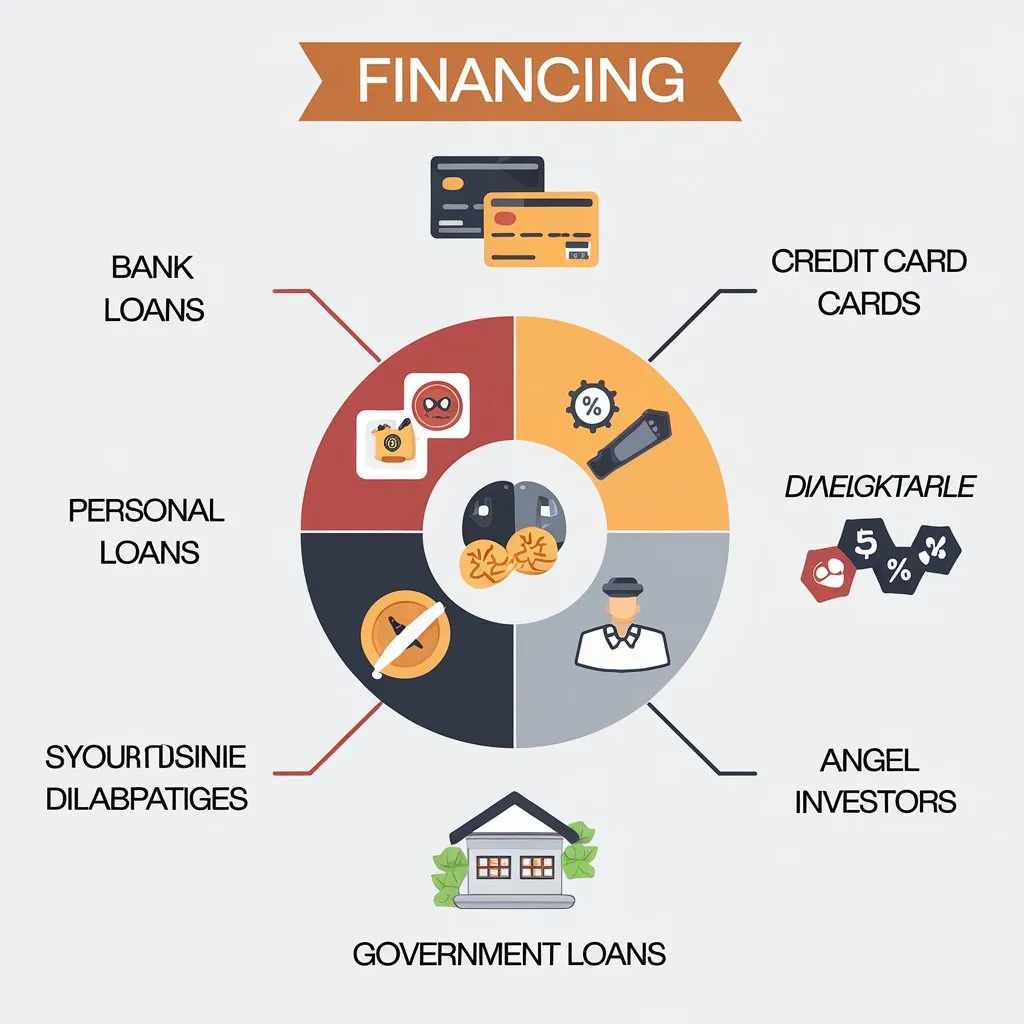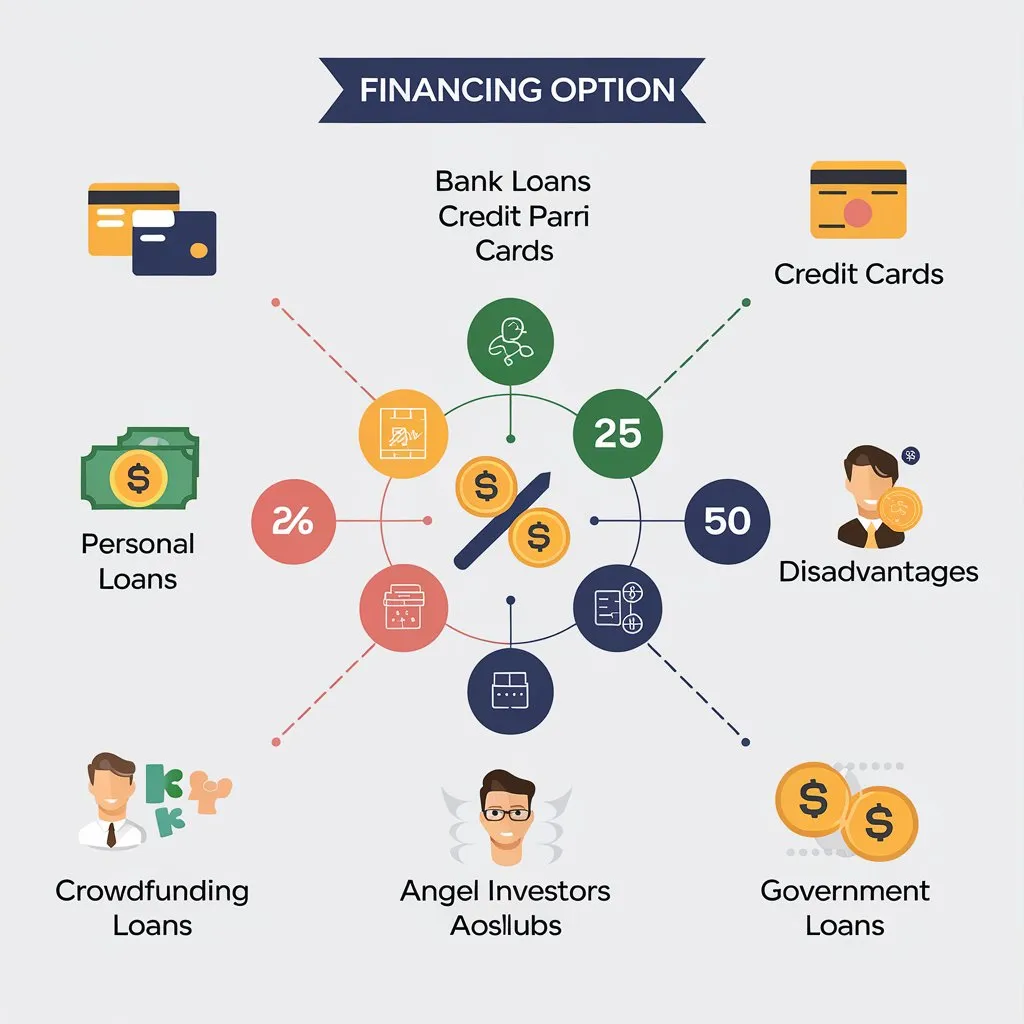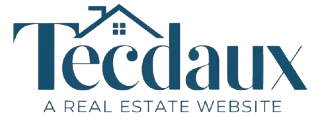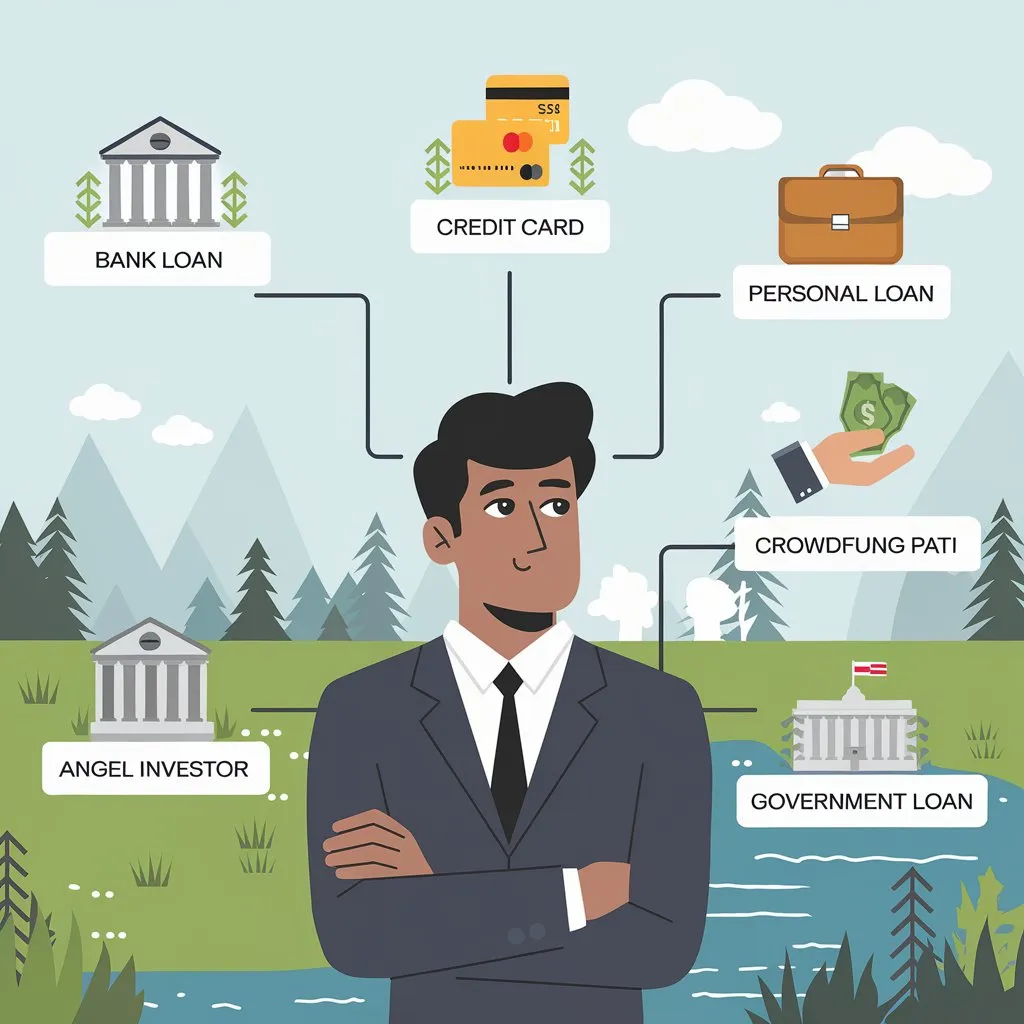Financing is a lifeline for many endeavors, whether it’s purchasing a home, launching a business, or expanding an existing enterprise. With a wide array of financing options available today, it can be challenging to choose the one that best fits your specific needs and goals. Each financing option has unique advantages and potential drawbacks that should be carefully considered before making a decision. This article will delve into the primary financing options and weigh their pros and cons, helping you make an informed choice suited to your financial needs.

Key Financing Options and Their Pros and Cons:
1. Bank Loans
Advantages:
- Flexibility: Bank loans can be used for a variety of purposes, making them versatile for personal or business needs.
- Competitive Interest Rates: Banks often offer relatively low-interest rates, especially for borrowers with a good credit history.
- Customizable Repayment Terms: Banks may offer repayment plans that can be tailored to match the borrower’s financial situation and goals.
Disadvantages:
- Strict Requirements: Bank loans typically require a solid credit history, proof of steady income, and a low debt-to-income ratio, making them harder to qualify for.
- Lengthy Approval Process: Bank loan applications can be time-consuming, with extensive paperwork and strict scrutiny.
- Collateral: Many banks require borrowers to provide collateral, such as real estate or valuable assets, to secure the loan.
2. Credit Cards
Advantages:
- Easy Access: Credit cards are relatively easy to obtain compared to traditional loans.
- Flexible Usage: Credit cards offer significant flexibility, allowing you to cover various purchases and manage expenses conveniently.
Disadvantages:
- High Interest Rates: If balances are not paid off in full monthly, credit cards often carry high interest rates that can quickly increase debt.
- Debt Trap Risk: Credit cards can make it easy to accumulate debt, leading to potential financial stress if not managed responsibly.
3. Personal Loans
Advantages:
- Broad Usability: Personal loans are not restricted to specific uses, making them suitable for various personal or business expenses.
- Quick Approval: Personal loans generally have a quicker application and approval process than more complex financing options like mortgages.
Disadvantages:
- Higher Interest Rates: Personal loans often come with higher interest rates compared to secured loans, especially if the borrower’s credit score is not strong.
- Lower Loan Amounts: The loan amounts available through personal loans may be more limited than larger financing options like mortgages.
4. Crowdfunding
Advantages:
- Broad Funding Access: Crowdfunding platforms allow you to access a wide range of potential investors, often with fewer eligibility requirements.
- Community Support: Crowdfunding can create a supportive community around your project, helping to promote and sustain it.
Disadvantages:
- Uncertain Results: There’s no guarantee of raising the full amount needed, and many campaigns may not reach their goal.
- Marketing Effort: Effective crowdfunding requires significant promotional and marketing efforts to attract backers and gain attention.
5. Angel Investors
Advantages:
- Substantial Capital: Angel investors typically provide significant funds, which can be crucial for start-ups and expanding businesses.
- Access to Expertise: Angel investors often bring valuable industry knowledge and contacts, which can benefit your business.
Disadvantages:
- Equity Dilution: To secure angel investment, you may need to give up a portion of ownership in your business.
- Increased Pressure: Investors may expect rapid growth and profitability, creating additional pressure for the business.
6. Government Loans
Advantages:
- Low-Interest Rates: Government loans often come with favorable interest rates, making them an affordable option.
- Flexible Terms: These loans may have more lenient repayment terms compared to private loans.
Disadvantages:
- Strict Eligibility Requirements: Government loans can have stringent requirements based on factors like income, location, and purpose.
- Bureaucracy: The application process for government loans can be lengthy and complex, often involving a lot of paperwork.
Factors to Consider When Choosing a Financing Option

Selecting the right financing option involves considering various factors to ensure that the choice aligns with your financial situation and goals. Here are some key considerations:
- Purpose of Financing: Is the funding for a business start-up, a home purchase, or another personal goal? Each purpose may align better with certain types of financing.
- Loan Amount Required: Consider how much you need. Personal loans might work for smaller needs, while business loans or government programs may be better suited for larger sums.
- Repayment Period: Determine how long you’ll need to pay back the loan. Some loans have shorter terms with higher monthly payments, while others offer longer repayment plans.
- Credit History: Your credit score and history will affect your eligibility and the terms available, particularly with traditional bank loans.
- Collateral: Do you have assets you can use as collateral? This can impact your eligibility and loan options.
Tips for Choosing the Right Financing Option
- Conduct Thorough Research: Compare different financing options, rates, and terms before making a decision.
- Seek Expert Advice: Consult a financial advisor or accountant for tailored advice, especially for significant investments.
- Review Terms and Conditions Carefully: Be sure to understand all terms and potential fees associated with any financing agreement.
Conclusion
Financing is a pivotal decision that should be tailored to individual goals, financial status, and future plans. By understanding the benefits and drawbacks of each financing option, you can make an informed choice that supports your objectives, minimizes risk, and optimizes financial health.
Important Notes:
- This article is for general informational purposes only and is not intended as financial advice.
- You should consult a financial expert or real estate professional before making significant financial decisions.
- Economic and regulatory conditions may change, so always verify the latest information before making a decision.

